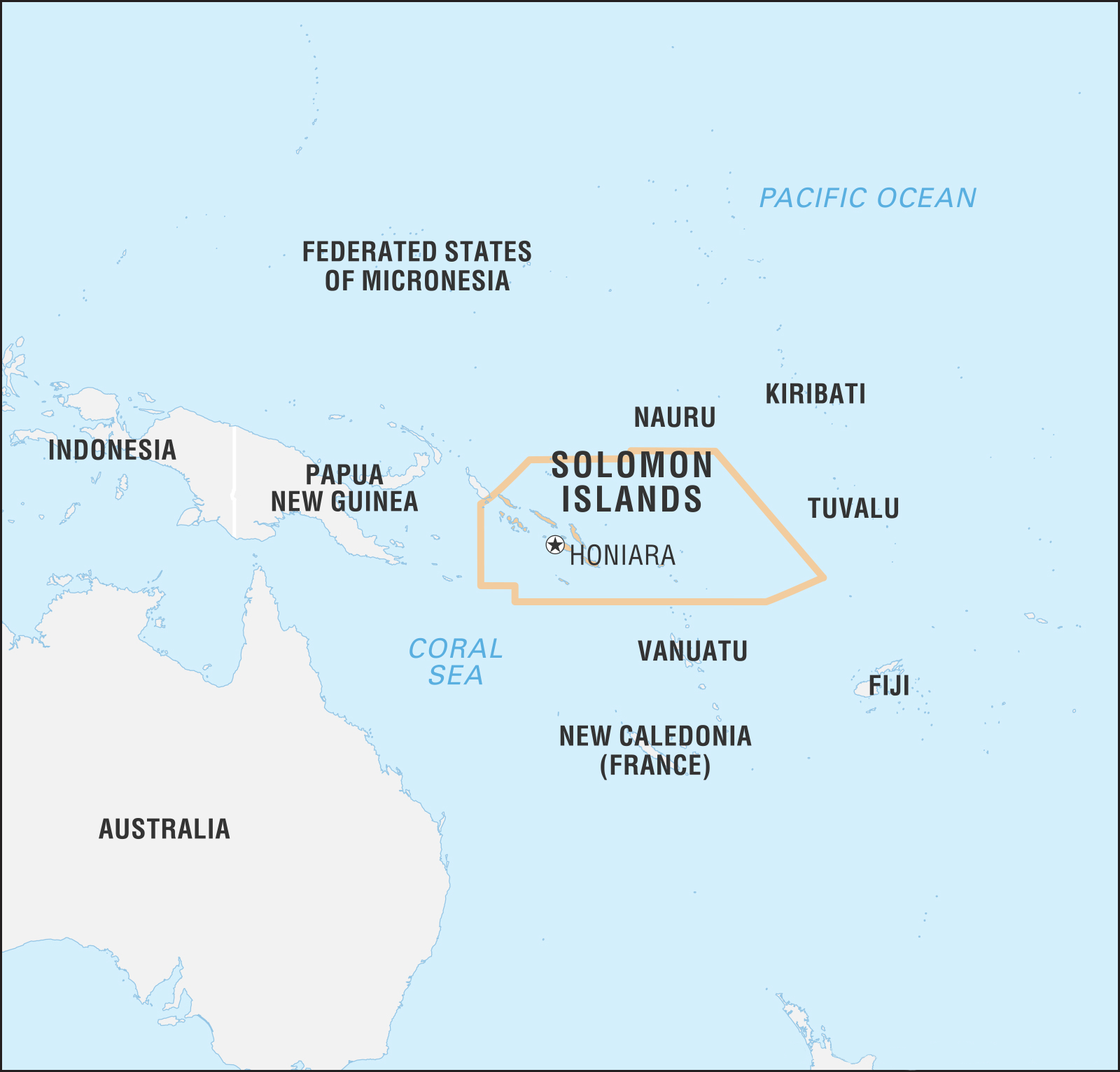Solomon Islands
Why in News?
Recently, the US says it will open an embassy in the Solomon Islands, laying out in unusually blunt terms a plan to increase its influence in the South Pacific nation before China becomes “strongly embedded.”
What is the Reason behind the Decision?
- Solomon Islanders cherished their history with Americans on the battlefields of World War II (1939-45), but that the US was in danger of losing its preferential ties as China “aggressively seeks to engage” elite politicians and business people in the Solomon Islands.
- The move comes after rioting rocked the nation of 7,00,000 in November, 2021.
- The riots grew from a peaceful protest and highlighted long-simmering regional rivalries, economic problems and concerns about the country’s increasing links with China.
- The embassy announcement fits with a new Biden administration strategy for the Indo-Pacific and emphasises building partnerships with allies in the region as a way to counter China’s growing influence and ambitions.
- In the Quad meeting held recently, the US has said that it is committed to a “free and open, connected, prosperous, secure, and resilient” Indo-Pacific region.
Where is the Soloman Islands Located?
- Solomon Islands is a nation in Melanesia, east of Papua New Guinea, comprising more than 990 islands. Its capital is Honiara, located on the island of Guadalcanal.
- The Solomon Islands have been inhabited by Melanesian people for at least 30,000 years.
- It consists of a double chain of volcanic islands and coral atolls in Melanesia.
- Melanesia is a subregion of Oceania in the southwestern Pacific Ocean.
- The country comprises most of the Solomons chain—with the exception of Buka and Bougainville, two islands at the northwestern end that form an autonomous region of Papua New Guinea.
- The island is a constitutional monarchy, with the British monarch, represented by a governor-general, serving as the formal head of state. Still, the country, a member of the Commonwealth, is independent, and the governor-general is appointed on the advice of the unicameral National Parliament.
